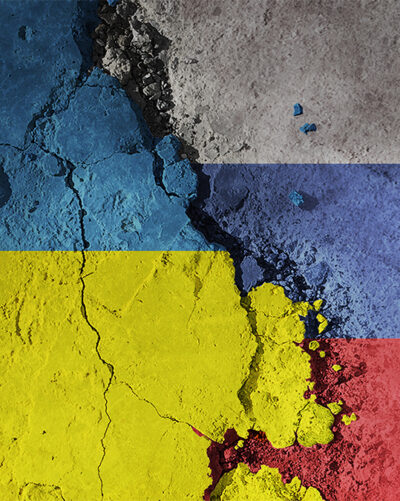Russo-Ukraine conflict profile 2023 (revision of the study “Overview of the armed conflict in eastern Ukraine – a context and conflict analysis”)
The study was conducted within the framework of the project “Local Self-Government and the Rule of Law in Ukraine” implemented by the Folke Bernadotte Academy (FBA) during 2014-2023 with the financial support from Sweden. The study was conducted by the Center for Security Studies CENSS.
Project implementation period: August 2023 – February 2024.

On February 24, 2022, the armed forces of the Russian Federation initiated a large-scale offensive operation against Ukraine and continued the aggression that started in 2014, but its nature and scale have changed. Alongside the usual economic, diplomatic, and informational instruments, Russia now extensively employs military force against Ukraine.
In August–September 2023 the team of experts from the Center for Security Studies “CENSS” reviewed the analytical report “Overview of the Armed Conflict in Eastern Ukraine, Context, and Conflict Analysis,” conducted by CENSS in 2020. In the past one and a half years, numerous changes have taken place in response to the challenges faced by Ukraine and its institutions. To reflect this altered context, the revised analytical report includes a brief overview of the situation, a mapping of efforts for recovery and reconstruction, and an analysis of the context that amplifies issues related to public administration, the security sector, the reintegration of veterans and internally displaced persons, and issues related to conflict-related sexual and gender-based violence.
The report was prepared using the following sources: official information from state institutions; information from interviews with representatives of state institutions and local, national, and international governmental and non-governmental organizations; secondary data collected or created by international institutions and other stakeholders, including high-trust non-governmental organizations, including assessments, monitoring reports, and research.
By using information from various sources and a wide range of stakeholders (both official statistics and analytical studies), it has been possible to develop a comprehensive picture of the situation, problems and challenges related to the Russian aggression against Ukraine according to various components: recovery and reconstruction, public administration, the security sector, the reintegration of veterans and internally displaced persons, conflict-related sexual and gender-based violence.
Compared to documents previously published by national and international actors, which usually focus on one of the above components, this analysis is unique and comprehensive.
The thematic analysis of these components allowed us to develop key conclusions and recommendations that are crucial for assessing, planning and implementing activities aimed at overcoming the consequences of this aggression. Additionally, for each component, a thematic overview of international assistance provided to Ukraine by partners is presented.

